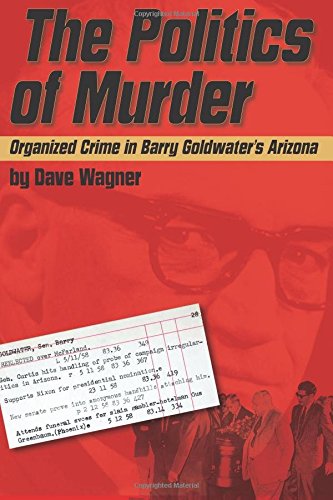The Politics of Murder: Organized Crime in Barry Goldwater’s Arizona
The Politics of Murder is a history of organized crime in Phoenix, Arizona from the heady days of prosperity after World War II to the end of the 20th century. It is a history full of unsolved murders that includes figures like Willie Bioff, a society gangster who was killed for double-crossing a Tucson kingpin
The Politics of Murder is a history of organized crime in Phoenix, Arizona from the heady days of prosperity after World War II to the end of the 20th century. It is a history full of unsolved murders that includes figures like Willie Bioff, a society gangster who was killed for double-crossing a Tucson kingpin on an unpaid loan. Phoenix crime boss Gus Greenbaum was a friend of the state’s most powerful politicians and helped develop the Las Vegas casino industry. He was rewarded with a grisly murder that is still officially unsolved. Land-fraud king Ned Warren stole nearly a billion dollars from veterans and retirees and got away with it for years because the Phoenix political network protected him even as he eliminated a dozen witnesses to his crimes. All of these killings remained unsolved at the time of the most notorious murder of them all, the 1976 car-bombing death of Arizona Republic reporter Don Bolles as he was investigating a tip that one of the most powerful men in the state was working with the Chicago Mafia to launder money from Las Vegas slot machines through Phoenix racetracks. The motive for killing Bolles was clearly related to evidence the reporter uncovered about the Las Vegas money laundering, but his murder remained unsolved for entirely different reasons. Solving Bolles’ death would have revealed a carefully kept secret: Barry Goldwater’s political operation, in a coordinated effort that included both legal and covert means, was in the process of removing from office the president of the Navajo Nation. It was an early example of regime change imposed on a sovereign government that was refusing to submit to an energy policy imposed by Washington. The chief assassin in the Bolles case had been hired only months earlier to work undercover for the covert effort to remove the Navajo presldent. If that connection had been made public, the Navajo regime change could have been stopped in its tracks. It had to remain a secret at all costs, and it was—until the publication of The Politics of Murder.







Comments